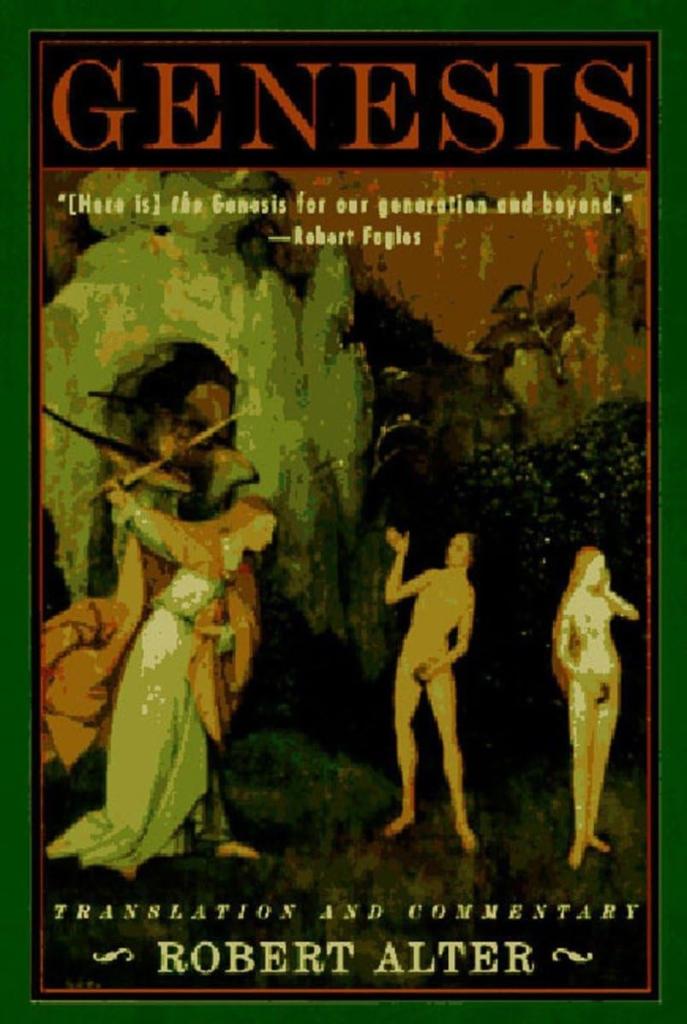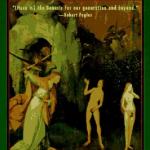Certainly two of the more crucial chapters in the whole OT are Gen. 2-3. Here we will deal just with Gen. 2, and save Gen. 3 for the next post. Whole theologies of sin and human fallenness are built on certain readings of these chapters, and sometimes not even the right questions are asked of these texts. For example, if Adam and Eve are created immortal and lose that by sinning, why was there already a tree of life in the garden of Eden they could have eaten of, had they not chosen fruit from the prohibited tree, and why were they banished from the garden with the motive said to be ‘so they would not eat of the tree of life and live forever’ but as fallen persons? What this suggests is physical mortality is a natural part of being truly human, and what happens when the forbidden fruit is eaten is spiritual death, the severing of the intimate relationship with God. But about Alter’s translation, how does it help us in discerning the meaning of these crucial chapters?
Chapter 2.7 reads “then the Lord God fashioned the human, humus from the soil, and blew into his nostrils the breath of life, and the human became a living creature”. There is nothing here about a soul, only a human being in bodily form and the breath of life, much like an EMT person trying to revive a person by breathing into them.
The description of the garden mentions the tree of life first and the tree of the knowledge of good and evil, and we are told about trees lovely to look at and good for food. The mention of the rivers makes clear we are talking about the ANE fertile crescent, involving the Tigris and the Euphrates. The origins of God’s people begins there, not, for instance, in Africa. The human is placed by God in the garden to till it and watch. And BTW, nothing is said here about a temple or worship— a gan is a park or a garden (sorry John Walton). I like the first and only commandment given to the human as rendered by Alter– prohibiting eating from the tree of knowledge, but if you eat of it— ‘you are doomed to die’ without specifying what sort of death we are talking about. BTW, there are indeed Christological implications for Christians in the way they read this chapter. If it is true that Christ became truly human, and mortality is part of being truly human NOT a result of the original sin, then there is no problem with saying Christ was fully human, accepting our natural limitations of time, space, knowledge, power, and mortality. This is the choice he made before taking on human flesh according to Phil. 2.5-11. Put in a colloquial way, God’s Son put the omnis on hold so he could be truly human. Yes, he had access to all power, knowledge etc. but he did not take advantage of those things during the incarnation.
One interesting possible implication of Gen. 2.18ff. is that the reason for mentioning ‘it is not good for the human to be alone’ and the creating of a suitable companion for him, but first a mentioning of the human naming the various sorts of animals is that he was looking for a mate (notice the phrase “but for the human no sustainer beside him was found” among the animals named), but the animal world provided no such mate. Naming is a ritual which implies that the person doing the naming has authority over the living creatures named. So instead God takes a part of the human and fashions another human that can indeed be the human’s mate. And the man exclaims “This one at last, bone of my bone and flesh of my flesh. This one shall be called Wo-man for from man was this one taken.” The writer then draws the conclusion– “therefore, does a man leave his father and mother and cling to his wife and they become one flesh. And the two of them were naked …and they were not ashamed.” What is especially interesting about this last line is that normally in a patriarchal situation the opposite would happen the bride would leave behind her birth family, and become part of her husband’s family and tribe, which suggests that patriarchy was not God’s original plan for humans. One more point– the implication is that the one flesh union is only possible between a man and a woman, and if the one flesh union is the basis of what came to be called marriage. (see what Jesus says in Mt. 19), then other relationships, however intimate do not constitute a Biblical marriage. Only through a one flesh union can other human beings be created in all ages, before modern science made other arrangements possible,













